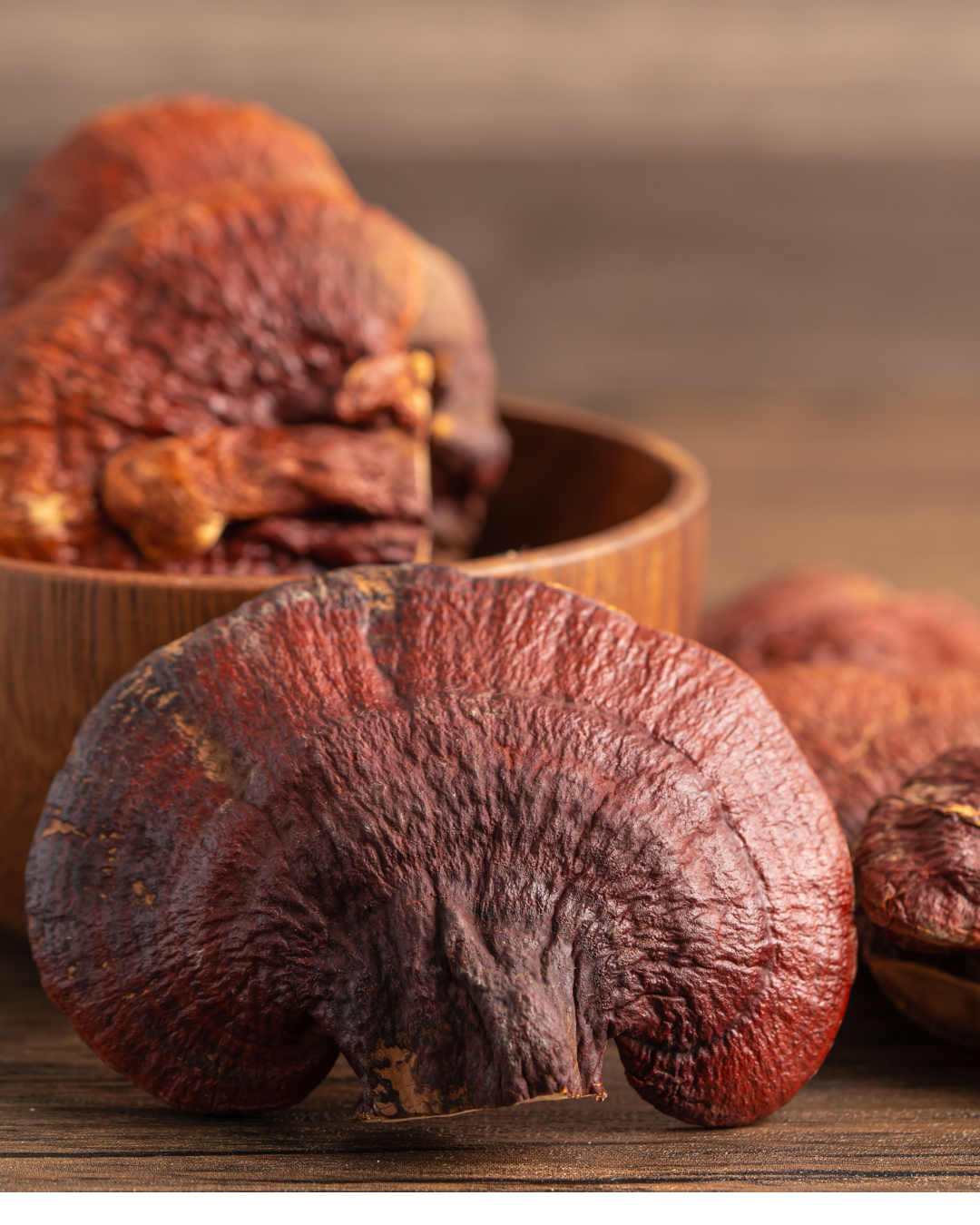Learn more about our Mushrooms
We’ve collected some studies so you can see for yourself the research behind these functional mushrooms!
Chaga Mushroom
Chaga is one of our core mushrooms because of its powerful and varied potential. Scientific reviews show that its polysaccharides, phenolic compounds, and antioxidant molecules help your body fight oxidative stress, reduce inflammation, support immune function, and maintain balanced blood sugar levels (Lu et al., 2021) . In lab studies, chaga extracts also demonstrated anti-cancer activity and antimicrobial effects, meaning they can inhibit certain cancer cell growth and harmful microbes (Camilleri et al., 2024). Additional research suggests chaga may protect against aging of cells, support metabolic health, and modulate immune responses in beneficial ways (Camilleri et al., 2024). While human clinical work is still developing, these early findings align with traditional use and are promising for daily wellness.
Lion’s Mane Mushroom
Lion’s Mane is one of those mushrooms that’s getting a lot of love in the science world, and for good reason. It contains compounds like erinacines, hericenones, polysaccharides, and phenolics that support brain health, help reduce stress, and fight inflammation (Friedman 2015) . In a human trial, people taking 1.8 g saw faster reaction times just 60 minutes after taking it, and after 28 days they reported less stress, though results were tentative (Docherty et al. 2023) . Other research suggests Lion’s Mane may protect nerve cells by stimulating nerve growth factor (NGF), lower inflammation, and act as an antioxidant (Szućko-Kociuba et al. 2023) .
Reishi Mushroom
Reishi has been studied for its wide-reaching effects on immunity, inflammation, and even cellular aging. Reishi fruiting bodies contain high levels of polysaccharides and triterpenes that act as antioxidants and support immune cell activity (Parepalli et al. 2021). In lab studies, extracts from Reishi have shown the ability to inhibit the growth of liver cells under stress and support liver function (Wang et al. 2009) as sited in THIS article. Large reviews also report potential anti-inflammatory, anti-tumor, and metabolic regulatory actions—especially in areas like glucose balance, fat metabolism, and weight control (El Sheikha et al. 2022). Another comprehensive review frames Reishi as a mushroom of “exceptional value,” highlighting its benefits in these areas (Ahmad et al. 2021).
While the evidence is still emerging and mostly from animal or lab work, these early findings align with Reishi’s long history of use for vitality, immune balance, and longevity.
Turkey Tail Mushroom
Turkey Tail is one of the most researched medicinal mushrooms and is known for immune support, gut balance, antioxidant action, and potential cancer-supportive effects. Its makeup includes compounds like polysaccharides, phenols, and terpenoids that help modulate the immune system, fight oxidation, reduce inflammation, and support microbial balance (Camilleri et al., 2024) . Lab and animal studies indicate that Turkey Tail extracts may help slow tumor growth and promote microbial diversity in the gut (Ajibola et al., 2024).
While most human trials are small, the preclinical data are strong and its safety record is well established in traditional use.





